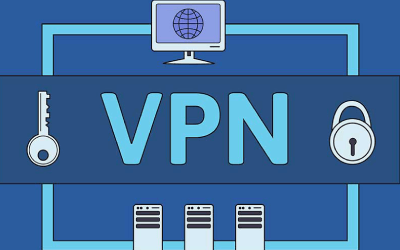A VPN is a service that provides you anonymity and security when you browse online. The VPN services encrypt your Internet connection and provides a ‘tunnel’ keeping your information secure.
Is VPN legal?
Having a VPN is extremely beneficial especially if your reasons for remain anonymous online are very strong. Though VPNs protect your identity and help you exchange sensitive data. There are things that are considered illegal on the internet. This could also get you in trouble with the law. When you legally use VPNs, they are not considered illegal in most of the countries worldwide. There are certain activities that are illegal when done over a VPN service and they will get you in trouble. These include:
- Child pornography
- Email hacking
- Hacking of accounts
- Spreading of viruses
- Spamming
- Theft and fraud for money
Can you be tracked if you use a VPN?
When you use a VPN, no one should ideally be able to trace you besides your VPN service provider. Since any traffic from your home computer in encrypted when using a VPN, even your internet service provider may not be able to track your internet activity. So subscription to a quality VPN service makes it impossible to trace you online.
However, you can be tracked when you use a free VPN as they tend to leak your IP address occasionally. Remain aware of the fact that a VPN provider with a no-log policy can hand over your private data to authorities if needed. However, VPNs with a no-log policy are a safe bet.
How do I get a VPN?
Getting a VPN account is an easy task that involves obtaining a VPN account from a VPN provider of your choice. It is similar to purchasing Internet access from an Internet service provider (ISP).
Are free VPNs safe to use?
VPN services are safe but it depends on the company you choose. For those who get free or low-budget VPNs, you should be a little skeptical. They could be logging your private information or may suffer from IP leaks. There are a few safe free VPN services, but they are very rare by and large. The best solution is to find a quality paid service offering a plethora of features and has a strong commitment to your privacy.
Why do you need a VPN?
Corporates and large organizations need a VPN to reduce the risk of security breaches as well as cyber-attacks. It also helps you exchange sensitive data with colleagues at a different geographical location and helps frequently traveling employees to use the internet without inhibitions. It can also make your clients feel secure. VPN services allow employees to remotely access files, work from home, etc. In the case of individual users, VPN networks can help protect your identity as well as sensitive information, besides maintaining your anonymity while you browse the Internet, make Skype calls, etc.
Can Netflix detect VPNs?
Your VPN will create a private tunnel for communication from your device to the Internet and back. Hence your traffic gets encrypted, and you get assigned a new IP address. Due to this new IP address, a good VPN is able to avoid Netflix geo-blocks. When you use a quality VPN, there’s a 99% chance that you can establish a connection to Netflix. However, Netflix has strong detection algorithms that block most VPN users who are detected. This is true especially when you use a VPN with a shared IP address. Fortunately, you have a few VPNs which do a good job unblocking Netflix and beating their complex algorithms.
Free vs Paid VPNs
Encryption – With paid VPNs, you can have advanced encryption like the 256-bit encryption and additional features such as a VPN internet kill switch that gives you anonymity as you surf the web. Free VPNs lack advanced features and the level of encryption supported may not be secure.
Security – Free VPNs use PPTP to encrypt your data and it’s insecure and obsolete. All paid providers use OpenVPN, an open-source protocol that uses SSL.
Online Privacy and Anonymity – Many times, free VPNs are ad-supported or they get subsidies through the sale of your data. In contrast, a paid VPN does better at protecting your privacy and anonymity.
Server Locations – All paid VPN also offers a good choice of server locations worldwide. The overall number of server locations is more compared to free services which have a limited number of global servers.
Connection Speeds – Most free VPNs may not run the best hardware and you will suffer from performance and connectivity issues. Paid VPNs tend to have robust server back-ends scaled to meet demands and your connection speed is usually high.
Support – Often with free VPNs, there’s the absence of solid tech support like live chat or phone services. Top VPN services will have 24/7 support through live chat and email. They also offer one-on-one phone support for instant response.
Are there any drawbacks to using a VPN?
A VPN connection has advantages in most cases. However, there could be a few disadvantages too. It could slow down the speed of your internet. Besides several services like Netflix have specifically blocked VPNs and you may not be able to view them after all. You could experience connection breaks where your IP address could be exposed beside the potential reselling of your internet habits to third parties.
